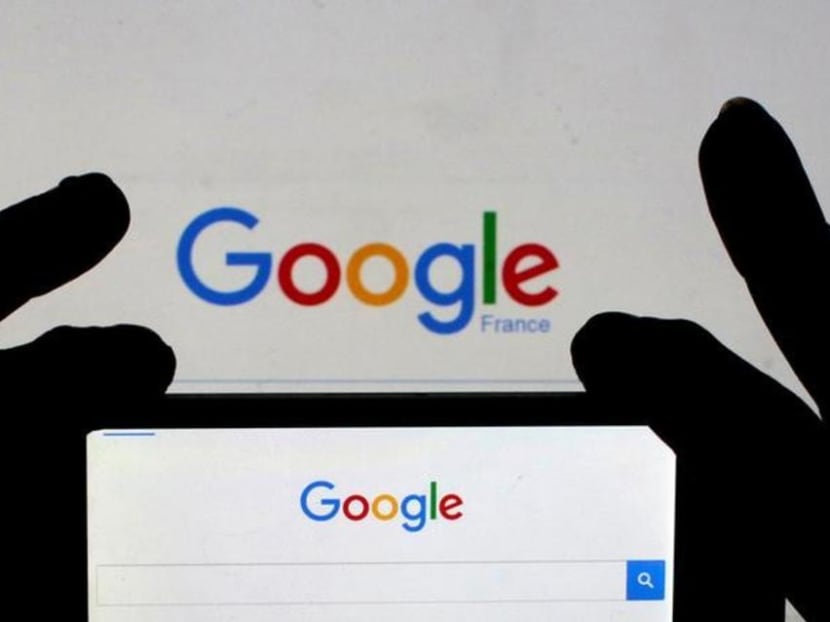Google says it will not accept political advertising in S’pore; SDP criticises move
SINGAPORE — Technology giant Google said on Wednesday (Dec 4) that it will not accept political advertising in Singapore, in a decision that it had earlier disclosed to the Singapore Democratic Party (SDP) in email correspondence.

The Singapore Democratic Party said that it was invited to Google’s office to learn about its services in election campaigns, but shortly after that, it received information that Google had banned political advertisements in Singapore.
SINGAPORE — Technology giant Google said that it will not accept political advertisements in Singapore, in a decision that it had earlier disclosed to the Singapore Democratic Party (SDP) in email correspondence.
In response to queries from TODAY on Wednesday (Dec 4), Google restated a decision that it had told the SDP, that it will not accept advertisements regulated by the Code of Practice for Transparency of Online Political Advertisements.
The code is part of Singapore’s “fake news” law, the Protection from Online Falsehoods and Manipulation Act (Pofma), which took effect on Oct 2.
In an online statement headed: “Update to the political content policy (November 2019)”, Google said that its ban in Singapore took effect on Monday. It is not clear when the statement was posted by the company.
A political advertisement or paid content is one that can reasonably be regarded as being directed towards a political end, whether to promote the interests of a political party or to to influence the outcome of an election, for example.
In a statement to TODAY, Mr Ted Osius, vice-president of government affairs and public policy at Google Asia Pacific, said: “This was not an easy decision to make as Google is committed to delivering useful and relevant election-related information to users around the world. We had made similar decisions elsewhere, such as in Canada and Taiwan.”
The response was identical to the one Mr Osius gave on Dec 3 when replying to an email from Dr Paul Tambyah, SDP's chairman, who released email exchanges between the company and the party on Tuesday.
Google confirmed the authenticity of these emails to TODAY.
In a statement published on the party’s website, SDP had pushed the United States-headquartered conglomerate, whose parent company is Alphabet Inc, for an answer on why it decided to ban political advertisements in Singapore.
The party said that it was invited to Google’s Singapore office to learn about its services in election campaigns in June this year.
“When we subsequently tried to follow up with Google on the matter, we were suddenly told that the office was reviewing its policy. Shortly thereafter, we received information that Google had banned political advertising in Singapore,” the party said in its statement.
In Dr Tambyah’s first email sent to Mr Sundar Pichai, Google’s chief executive officer on Nov 22, he said that SDP was very disturbed to learn about changes to Google’s political content policy, given that the party is highly dependent on social media and the internet to get its message across to Singaporeans. He said that SDP had learnt of Google’s decision “from one of our partners”.
He added that alternative political parties would not have any ability to educate and inform Singaporean voters if they are not able to use Google’s advertising platforms.
In a reply to that email, Mr Osius said that each country has its own legislation on political advertisements and that Google will support such advertising consistent with its policies.
Global scrutiny on the way social media platforms have been used to spread misinformation, especially in the run-up to elections, has intensified and internet giants have responded to increasing public censure in various ways.
At a congressional hearing in the US in October, Facebook’s founder Mark Zuckerberg defended its decision not to take down political advertisements that contained false information, while Twitter’s chief executive officer Jack Dorsey announced that it will stop all political advertising on the social media site.
In the case of Singapore, Google’s decision is markedly different from a decision announced by Facebook in September.
Facebook said that anyone who wants to run advertisements on the social media platform about social issues, elections or politics in Singapore will need to first confirm their identity and location, and disclose who is responsible for the ad.
This means that such advertisers will have to use ad transparency tools that Facebook has been progressively rolling out across the world.
The announcements by both Google and Facebook come as Singapore is headed for a General Election, which is due by April 2021.
In response to the email from Mr Osius, Dr Tambyah sent a second email, seeking more answers from the tech giant, such as the specific legislation that bans online political advertising in Singapore and the type of political advertising that would be inconsistent with Google’s policies.
Dr Tambyah's email to the company read: “Google's actions are even more incomprehensible considering that it was your Singapore office that invited the SDP to its office to explain your company's services. It was shortly thereafter that we received information that Google had banned political advertisements in Singapore. What happened in between?”
No reply to that second email was published on SDP’s website.








